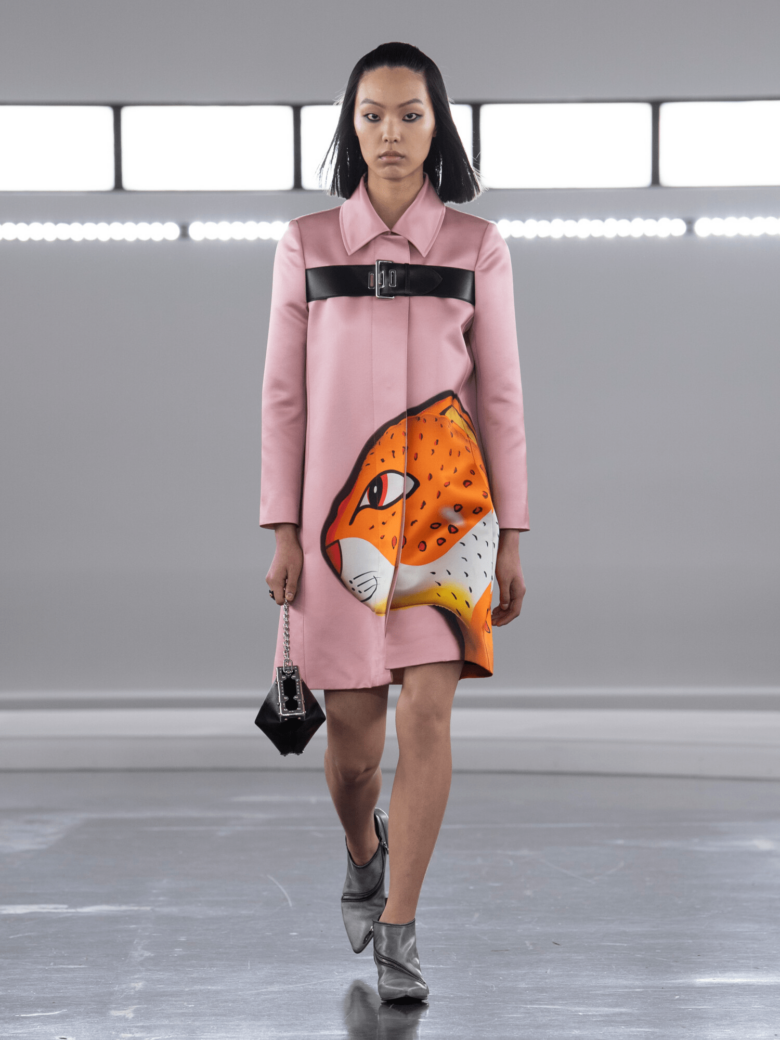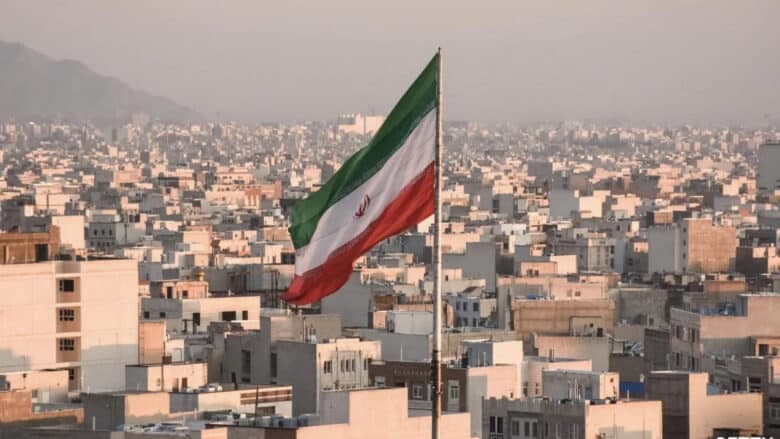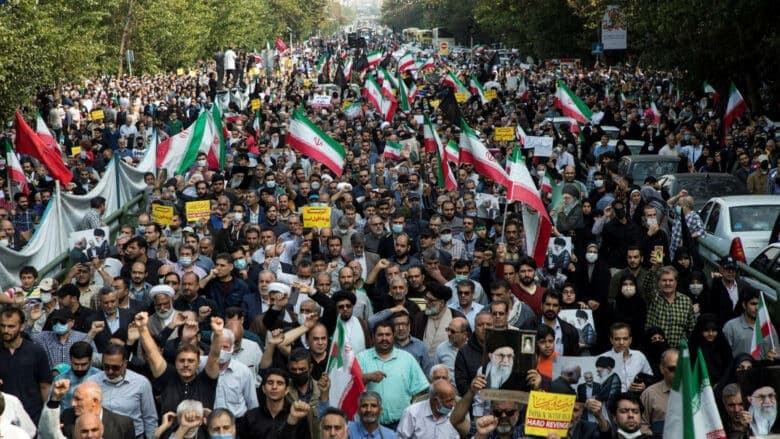The Iranian activists fighting for women’s liberation
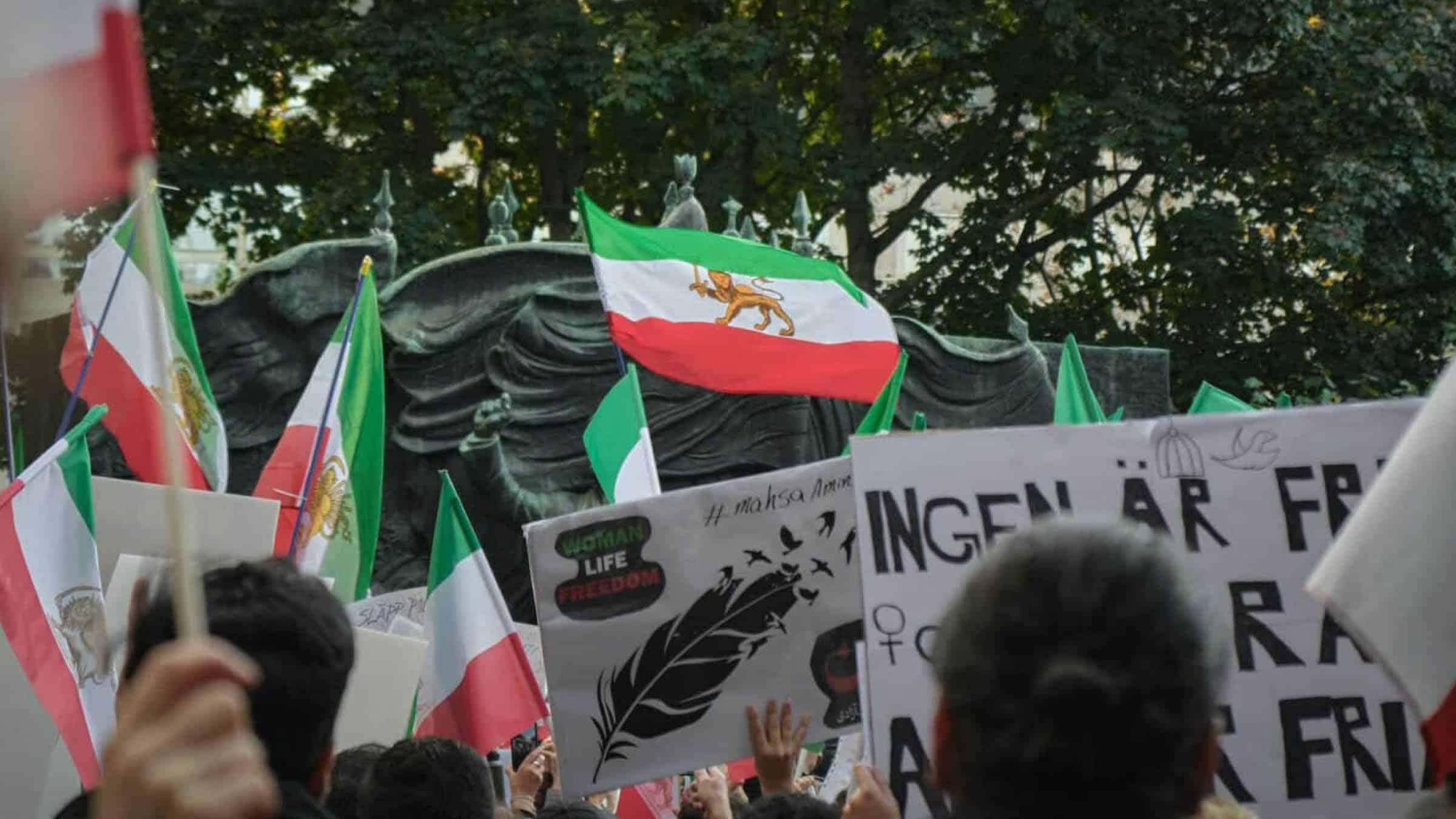
Iran is no stranger to protest. For half a century, the country’s streets have borne witness to citizens fighting for the possibility of a brighter, self-determined future. The 1979 revolution saw one dictatorship swapped for another and the almost-total revocation of women’s liberties. More recently, the “Bloody November” anti-government protests of 2019 and 2020 saw the death of dissidents, as well as an unprecedented near-total Internet blackout. However, the events that began in September of 2022 are different to anything we have seen before.
On September 16th, Mahsa Amini, a 22-year-old Kurdish aspiring lawyer, died in police custody in Tehran after being arrested for “improperly” wearing her hijab. The regime claimed she had died as a result of a heart attack, while reports say that she was beaten into a coma, and passed away from severe trauma to the skull. This tragic death was one in a long line of similar incidents; the regime had once again lied and attempted to cover up the unlawful death of a woman. Enough, it seemed, was enough.
Women and girls poured onto the streets in what has made for months of awe-inspiring displays of courage and resilience, all in the face of great persecution. “Women, life, freedom”, they chanted, ripping off their hijabs and cutting their hair. It’s a rallying cry that has been heard time and time again, from their mothers and grandmothers, since wearing the hijab and “loose-fitting clothing” became obligatory in 1983.
Now, as the protests continue, it’s been reported that at least 506 demonstrators have lost their lives. As we go to print, the regime marked their second execution: this time of a male ally who had been linked to the ongoing uprising. But still, the wave of unrest shows no sign of slowing down.
Here, three Iranian women, who have experienced the regime at various stages, speak to HUNGER about their ongoing activism, and their dreams for a just future.
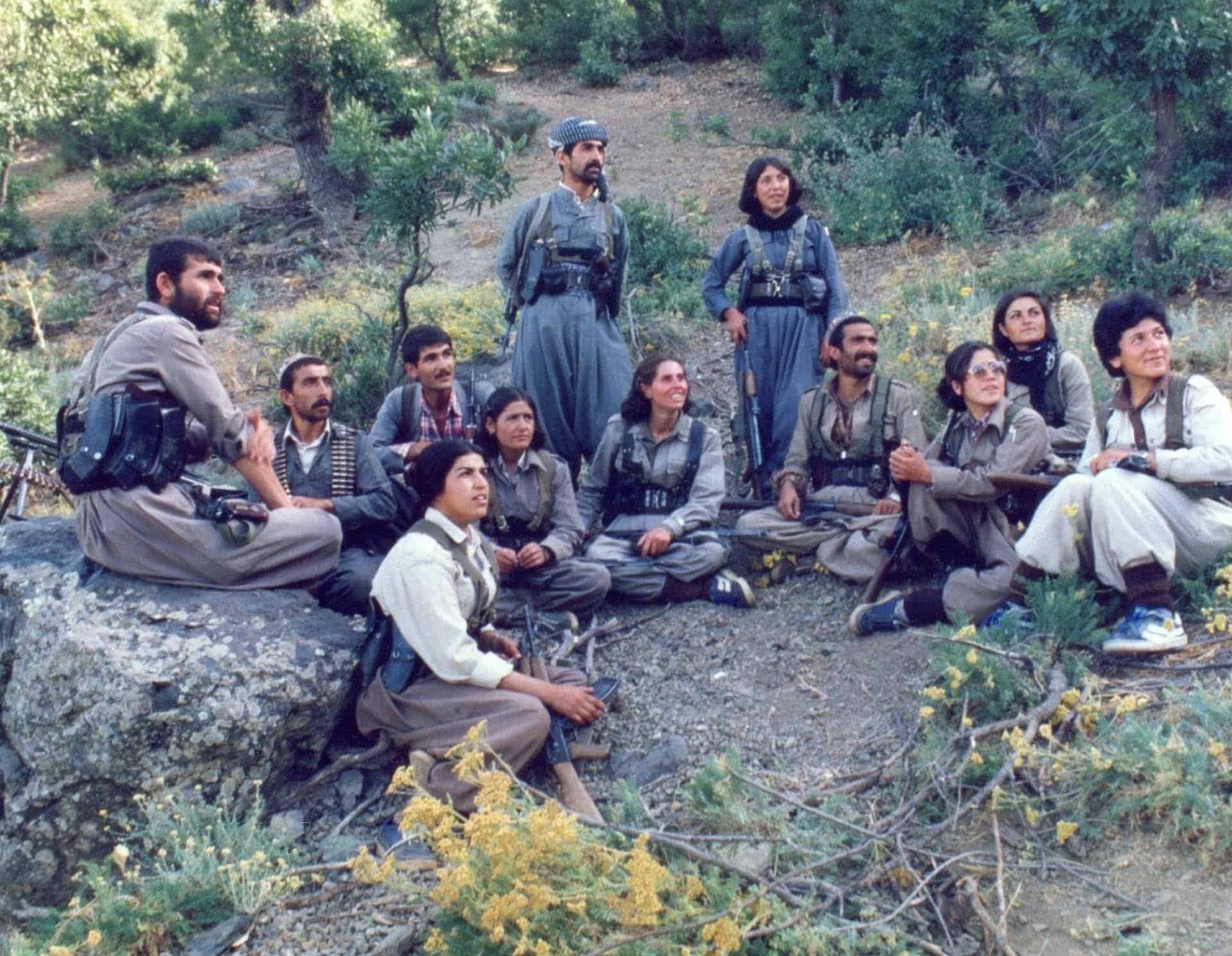
Diana Nammi
There’s one sentence that Diana Nammi has been unable to forget since she was a young child: “Don’t send her back, her father and brother will kill her.” She’s telling me about an incident she witnessed when she and her family attended the wedding of a man who worked at her father’s bakery in a small town in the Iranian province of Kurdistan. “We were very happy. We wore our best clothes. We had good music and danced for three days and three nights,” Nammi recalls. “But on the day of the wedding, things changed drastically.
“It went from this very happy atmosphere to women crying and men shouting. My mother and I went to see the bride. She was so lovely with her long, shiny black hair, bronze skin and big eyes, but she was holding her knees and crying.” The girl, who was about 15, had been accused of not being a virgin because she had not bled when the marriage was consummated. “The groom was standing in the middle of the room, yelling that he was going to send her back to her family. Her mother came forward and begged him not to do it, as she would be murdered. Some of the women were crying for her and the rest said that she deserved it for bringing shame.”
Nammi’s father, who was a progressive thinker and the groom’s boss, threatened to fire him, so he chose to accept her. “It was a nice ending for her in a way,” Nammi says. “But it changed the whole of my life – that question of why someone should be killed over her virginity. As I grew up I saw more violence and more discrimination, and I realised that women’s lives always belong to men. They could simply be sent back to their family homes be- cause they had no power. All they were allowed to do was reproduce, give pleasure to men and clean the house — they had to act like slaves.”
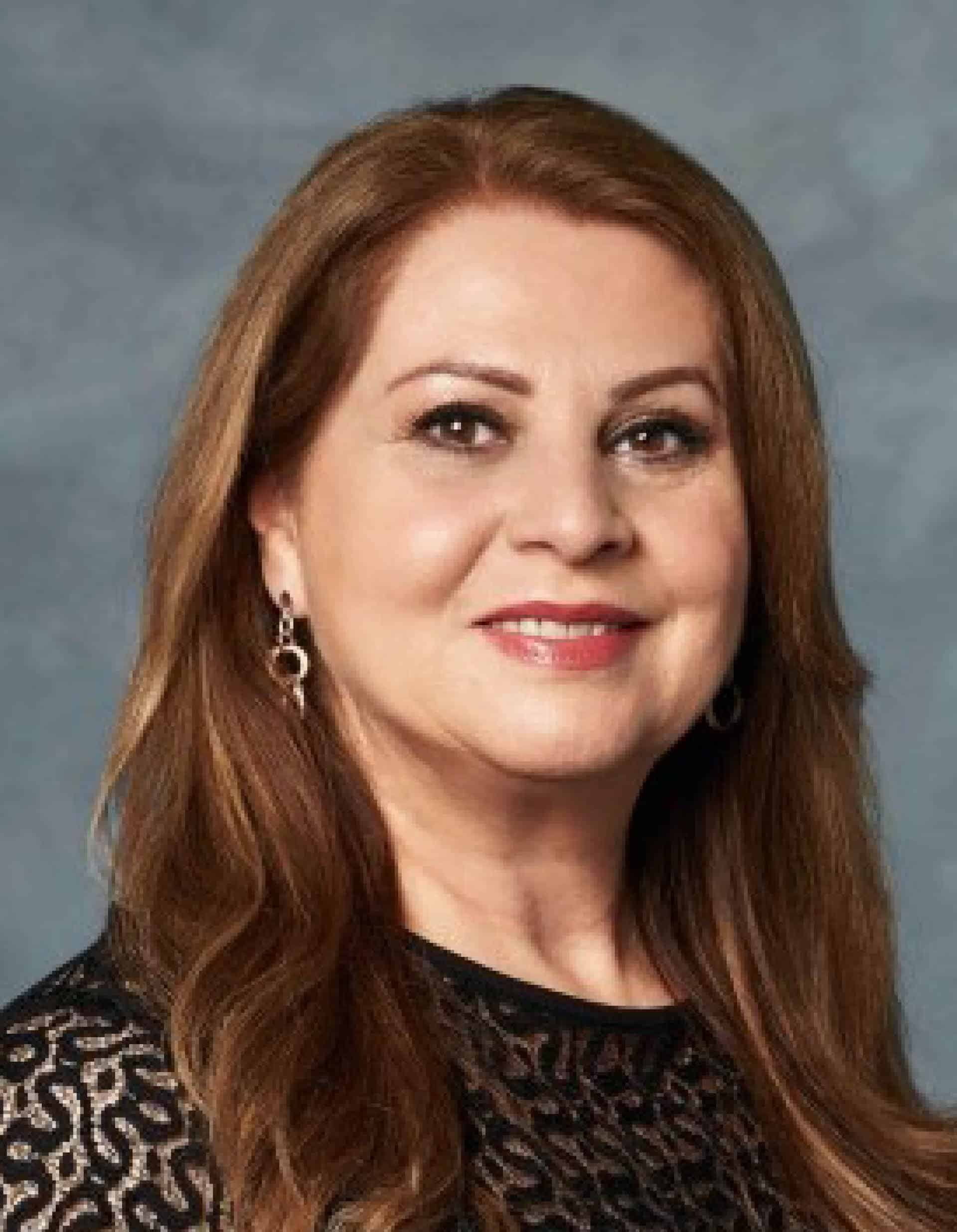
Nammi was 16 and training to be a teacher when the Iranian revolution began. She quickly became active on the political scene in Kurdistan, which was spared the new theocracy’s exhaustive restrictions until the Islamic Republic won out over the Kurdish separatists in 1981. “The first thing they did when they came to power was force women to wear the hijab. All of them. They threw acid on women’s faces and cut their lips if they wore make-up. They threw acid on their legs for wearing a skirt and they would pin the hijab over their foreheads to teach them to show no hair. The only colours they could wear were black, grey, brown and navy, nothing else, and the people of Iran used to wear very bright and happy colours.”
The citizens of Kurdistan, however, had a period of freedom before the new republic took over. During this time, when she was 17, Nammi joined the Peshmerga freedom fighters – who she would continue to fight with, often on the front line, for the next 12 years. Eventually the draconian laws of the Islamic Republic rolled into her province. “The government took [Kurdistan] back and started to arrest everyone you could imagine,” Nammi remembers. “They looked at the hospitals and collected injured people and even started to execute them. They would just look at people’s faces and say, ‘This group is for execution.’”
After becoming pregnant in 1991, a chemical bomb attack killed 35 people at a local radio station in Iraq where Nammi was work- ing, forcing her to seek exile in the UK in 1996. Once there, she was driven to found the Iranian and Kurdish women’s rights organisation IKWRO after a Kurdish interpreter who she had met in north London and who had helped Nammi and her young daughter settle in the country, was killed by her own husband, and her in-laws, after being taken back to Iraq by him. At the time, police in Britain did not consider it an “honour crime” and instead deemed it a cultural issue. No one in Iraq or the UK has been prosecuted.
As such, supporting the victims of honour based violence is at the crux of everything Nammi and IKWRO do. The organisation provides advice to Middle Eastern, North African and Afghan women living in the UK who are at risk of, or have experienced, any form of brutality, including forced marriage, child marriage, domestic abuse and female genital mutilation. IKWRO was notably key in getting two of the killers of the Iraqi-Kurdish woman Banaz Mahmod extradited to the UK for prosecution. Mahmod had been murdered in south London in 2006 on the orders of her family after leaving a forced and abusive marriage to start a relationship of her choosing.
Now, in light of the current insurrection, IKWRO is in the process of drafting a statement imploring the UK government and European Commission to act in favour of Iranian women and girls by taking harder stances against the regime. She is also concerned about how Iranian and Kurdish women living abroad are being affected by the insurrection and so is in the midst of setting up group counselling sessions for women and girls to air their anxieties.
“You know, I’ve dedicated my life to women’s safety and I cannot just sit and not be moved by these brutal things,” she says. “In Iran it’s not just that people are angry, they’re ambitious too. They can’t tolerate this government any more, and they’re willing to see this revolution grow. Now that the regime is executing people, people are getting angrier, the demonstrations will be stronger and I’m hoping that it will mark the end of this government.”
With regard to what can be done abroad, she stresses that the West must not tell the people of Iran what to do, but rather support them in any way they need. “First of all, the West needs to cut ties with the Iranian government and close down embassies and consulates around the world. Up until the 14th of December, Iran was still a member of the UN Commission on the Status of Women. It was such a joke. The silence coming from the British government is deafening.”
Nammi wants people to come out in greater numbers – “and come out into the streets to finish this brutal regime,” she says. “This government has been feeding on the blood and the brains of young Iranians. They are the heart of the country and they are the only ones that can finish it. But they need us to help them, we need to go to work too.”
Mahsa Alimardani
Born in Canada to Iranian parents, Mahsa Alimardani would often spend the summer months in Iran. Thanks to her father’s career as a pilot, she quickly became a seasoned traveller – frequently moving between North America, Belgium and Taiwan – but no cultural difference was so stark compared with what she experienced in Iran. She was just ten when she was told that she would have to start wearing the hijab whenever she visited the country.
“It was always a culture shock when I went back to Iran. I remember thinking, why are all the women around me wearing headscarves?” Alimardani says. “It’s hard not to notice as a child who was coming from free societies. Initially I thought it was cool, and then eventually, because we were spending the warmer months there, I started thinking it was awful. I remember asking my mum why, and the answer was that ‘they’ would come and take you away if you don’t and that these evil people who work for the regime will punish you.”
Now 33, Alimardani has spent the past decade of her life working to enable freedom of expression and access to online information in Iran, which has only become more crucial for women and girls amid the country’s ongoing protests. Currently she is a senior information controls fellow for the Open Technology Fund, a digital rights researcher for the human rights organisation Article 19, and a doctoral student at the University of Oxford’s Oxford Internet Institute.
Historically speaking, she says, the removal of a free internet has been one of the ways human rights have been abused within the Islamic Republic of Iran. As part of Article 19, she has been working to enshrine the right for citizens to access free and secure internet by liaising with big tech corporations like Meta, Twitter and Google. “By denying people access to the internet, the regime is effectively denying the right to life,” she asserts, speaking about the 2019 online blackout in the country, when the government almost completely shut down the internet for one week. “In the darkness of the shutdown, we potentially saw 1,500 or more deaths of protesters occur.”
Everything changed in September 2022. “As soon as we heard the news that Mahsa [Amini] was in a coma, there was this feeling that we were on the brink of something massive. In the aftermath of her tragic death we followed the protests [filled] with inspiration and horror while trying to work as quickly as we could. But beyond professionalism it’s something that’s close to my heart. I have friends and family who live in Iran and it’s a country that has defined a lot of who I am as a person.”
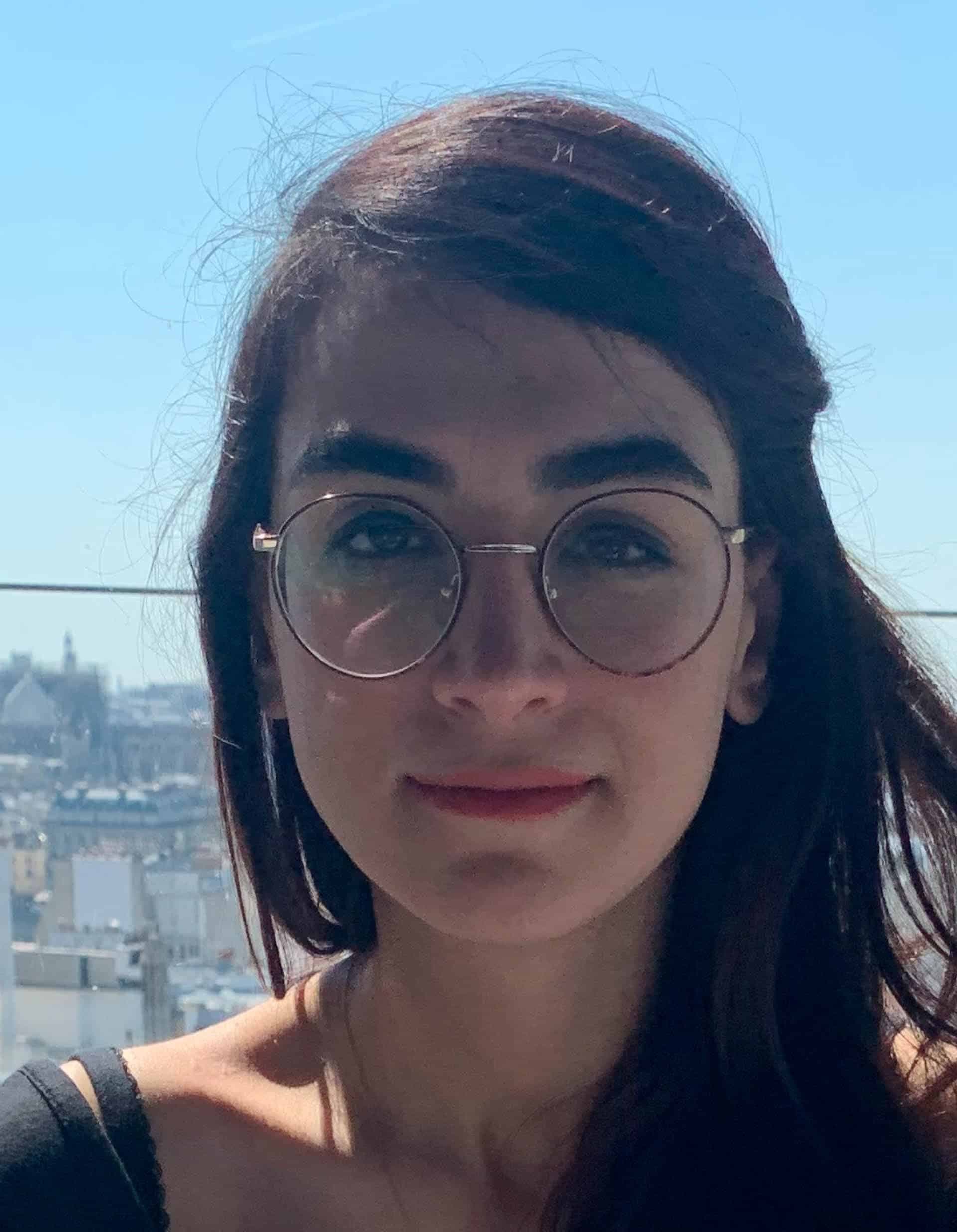
It is a fight where, again, access to a safe online space is vital, especially if cries for help are to be heard by the international community. “In a country where the public sphere is so heavily controlled, expressing yourself on the streets comes with huge risk, so having the right to represent yourself online becomes one of the main refuges for expression and protest,” Alimardani says. “And when it does reach boiling point and spills out onto the streets, we know there are going to be massive human rights crimes. These need to be reported, but free and independent media is greatly restrained, if not nonexistent, and journalists and foreign correspondents have limited access to Iran.”
While she acknowledges we are getting real-time updates from citizens on the ground, provision of a free and fair internet would make this a much quicker and more verifiable process. “The documented deaths since September have all been done through the internet and social media – but the restrictions mean that what we’re seeing is the tip of the iceberg. People are unable to connect to the internet or they’re too scared. Even if you look at the [Human Rights Activists News Agency] statistics, which are updated every day with regard to arrests and deaths, we suspect the numbers are actually much, much higher.”
Part of Alimardani’s work involves dealing with regime channels that pop up to identify protesters in order to arrest them later. Her team at Article 19 also liaises with companies to make sure that harmful content is removed and that Iranians are not being unduly censored. One recent project was about ensuring that the protest slogan “Death to Khamenei” is not filtered and removed from global platforms in a blanket fashion. “This is one of the main protest slogans we’ve seen and it started getting censored by Meta, who claimed it was violent incitement and went against one of their policies,” she says. “We worked with Meta to convince them to not take down that kind of content from Iranians because it’s not a legitimate threat and is being used as part of the protest effort.”
Alimardani, who has been working day in and day out since the insurrection started, sounds exhausted but the hope she has is palpable as she emphasises how everyone who has access to the internet can get involved. “It’s not superficial to just repost something, especially knowing the great pains people go through to get content up, or the risks they are taking to document things. Folks need to understand the gravity and the importance and the effort behind that content,” she says. “It’s extraordinary when you look at these people on the streets risking their lives to stand up for their rights and their futures, it’s beyond heroic. I don’t have the words to describe the selflessness and the moral courage you need to have to do what they’re doing.It’s not a race, it’s a marathon to get to the end of this regime.”
Shadi Sadr
As Shadi Sadr, the prominent Iranian lawyer, journalist and human rights advocate, speaks about her childhood in Tehran, one memory comes to the forefront – when she was nine her bike was taken away from her. It wasn’t because of any bad behaviour on her part, but rather enacted by her mother in order to protect her; as a young Iranian girl, it had become dangerous for her to travel freely. “I cried for so many nights,” Sadr recalls. “No one could explain it to me because it was so unfair. I felt betrayed by my mother, who didn’t believe in those ‘rules’ herself. Why could my brother and the other boys in my neighbourhood still go out?”
It’s an injustice that Sadr has carried with her and is symbolic of a larger shift she witnessed during her childhood. She was five when the Iranian revolution took place – an event that sought to depose the secular monarchy, resulting in an authoritarian theocracy led by the country’s first religious supreme leader, Ayatollah Khomeini. Women and girls were the first targets, and within the first years of his rule, the hijab was made compulsory, even for those of primary school age. “The hijab affected other aspects of our life greatly,” Sadr says. “It meant that, as girls, we already started to have the experience of being second class citizens in our society, especially as disobeying carried a range of punishments.”
The restrictions imposed on women were sweeping. They included men being able to prevent their wives and daughters from working and going out on the streets, as well as the reversal of the Family Protection Law, which meant that women could now be divorced just by being notified by mail and lose custody of their children. Sadr, however, was able to go on to study law at the University of Tehran – a choice she made in order to better understand the patriarchal system and how it could be circumvented.
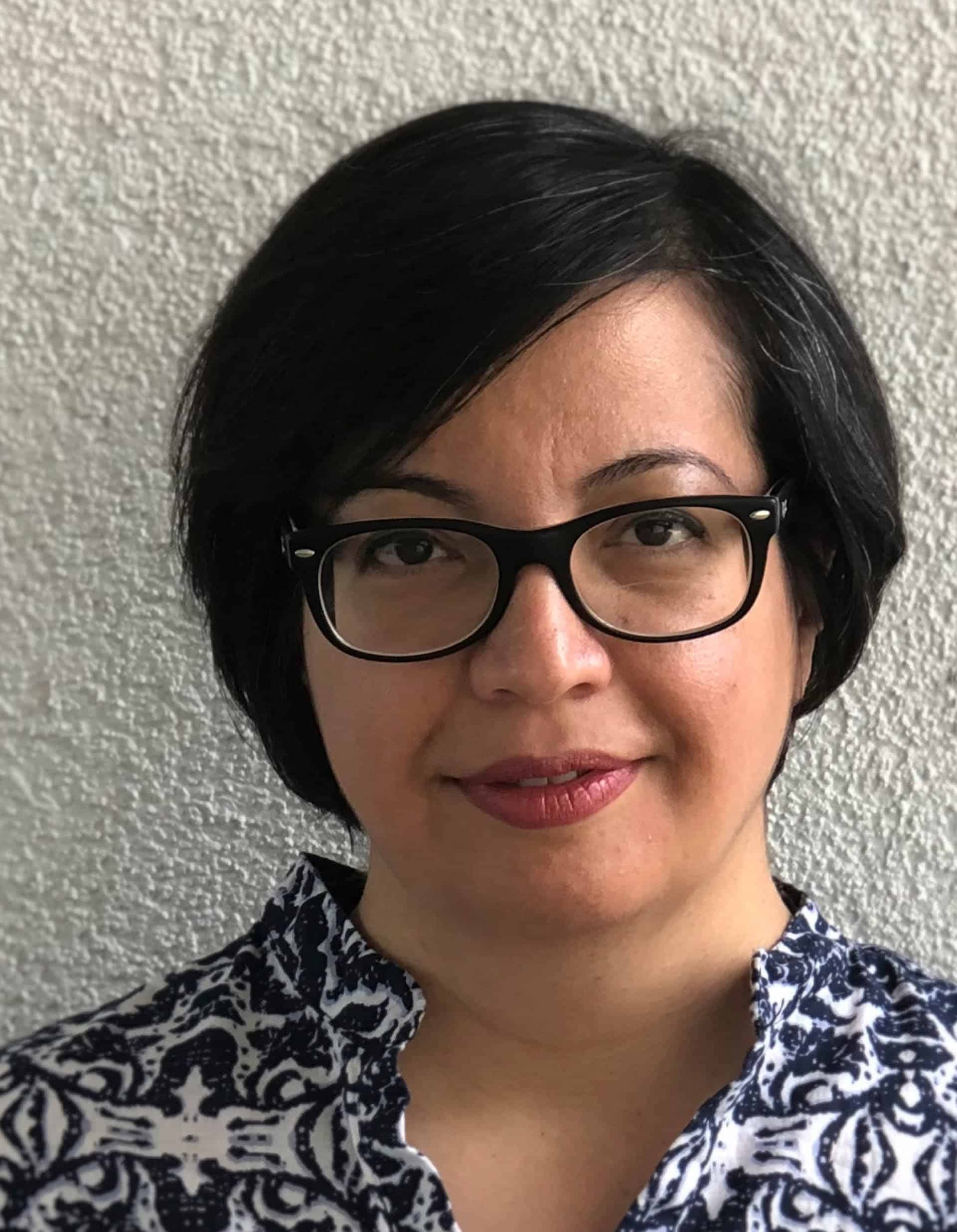
In the years since, the number of accolades she has received are extensive. In 2002, Sadr set up the Women in Iran website to raise the profile of female activists, and four years later cofounded the Stop Stoning Forever campaign, after the method of execution came into use in 1979, with women being disproportionately sentenced. She also founded Raahi Legal Centre, an NGO that provided advice to marginalised women. Here, she successfully defended in court a number of female journalists and activists who had been condemned to death, before finding herself a victim of the same regime.
In 2007, she was arrested after attending a peaceful protest and was held for 15 days in Tehran’s Evin Prison, which is notorious for human rights abuses and mistreatment of prisoners; during this time the authorities shut down Raahi Legal Centre. Then, in 2009, she was assaulted by plainclothes militia for participating in a demonstration following the presidential election and was detained for 11 days. “They physically tortured other people in front of me to psychologically abuse me, but they didn’t touch me as I was well known with incertain circles,” Sadr tells me, adding that current hallmarks of the country’s regime, including arbitrary confinement, physical interrogations, intimidation and pressurised confessions, were already entrenched practices.
Following her second detention, the activist was forced to seek exile in Europe. Overseas, she was convicted in absentia in Tehran for “acting against national security and harming public order” and was sentenced to six years in prison with 74 lashes.
It is through the lens of her personal history and the 1979 revolution that Sadr views the events going on in the country now. “It’s been like living on a rollercoaster,” she sighs, speaking from her home in London. “There are days when our hope is stronger, but it’s not easy. The most difficult part of our lives nowadays is finding the best way to contribute to this revolution and amplify the voices in Iran.”
As we speak, the NGO she cofounded in 2010, Justice for Iran (JFI), has been working tirelessly since the insurgence to hold the perpetrators of serious human rights violations accountable. Taking aim at country officials for crimes against humanity, enforced disappearances, war crimes, genocide and torture, the organisation aims to protect the most marginalised groups in the country, including women, ethnic and religious minorities, political dissidents and members of the LGBTQIA+ community.
Following the death of Mahsa Amini last September, JFI issued a public call-out to the people of Iran, asking them to send information about specific instances of brutality. They received more than a thousand communications from that one request, and have continued to record, categorise and verify them. “It shows us one very important thing – that the people in Iran are so eager to receive justice and they don’t want to use violence, even though they themselves have been subjected to unspeakable crimes,” Sadr states. “Many people have told us that they want this information recorded, even if they’re no longer alive or if the revolution doesn’t succeed. They want these people to end up in a court outside Iran, on an international level.”
This is part of a bigger mission of Sadr’s – to ensure that the international community is galvanised to enact greater measures against the Iranian government. “More institutions in different countries need to be involved, they need to implement sanctions and have a much tougher position. Leaders of the world can’t negotiate with a regime that kills innocent people.”
Having seen and experienced so much personally, Sadr shows a commitment to the cause that is moving. “It’s difficult,” she concedes, “and sometimes you think that you’ve sacrificed so much, but compared to those who have lost their loved ones and their children, it’s nothing. I have a responsibility to do whatever I can to support the women and girls of Iran. This is a cause that made me leave my beloved country – I’m not in the place I should be, and this creates such feeling against the regime. It’s a great motivation of mine to continue the battle to the very end.”
Taken from HUNGER Issue 27: Call to Action. Available to buy here.

